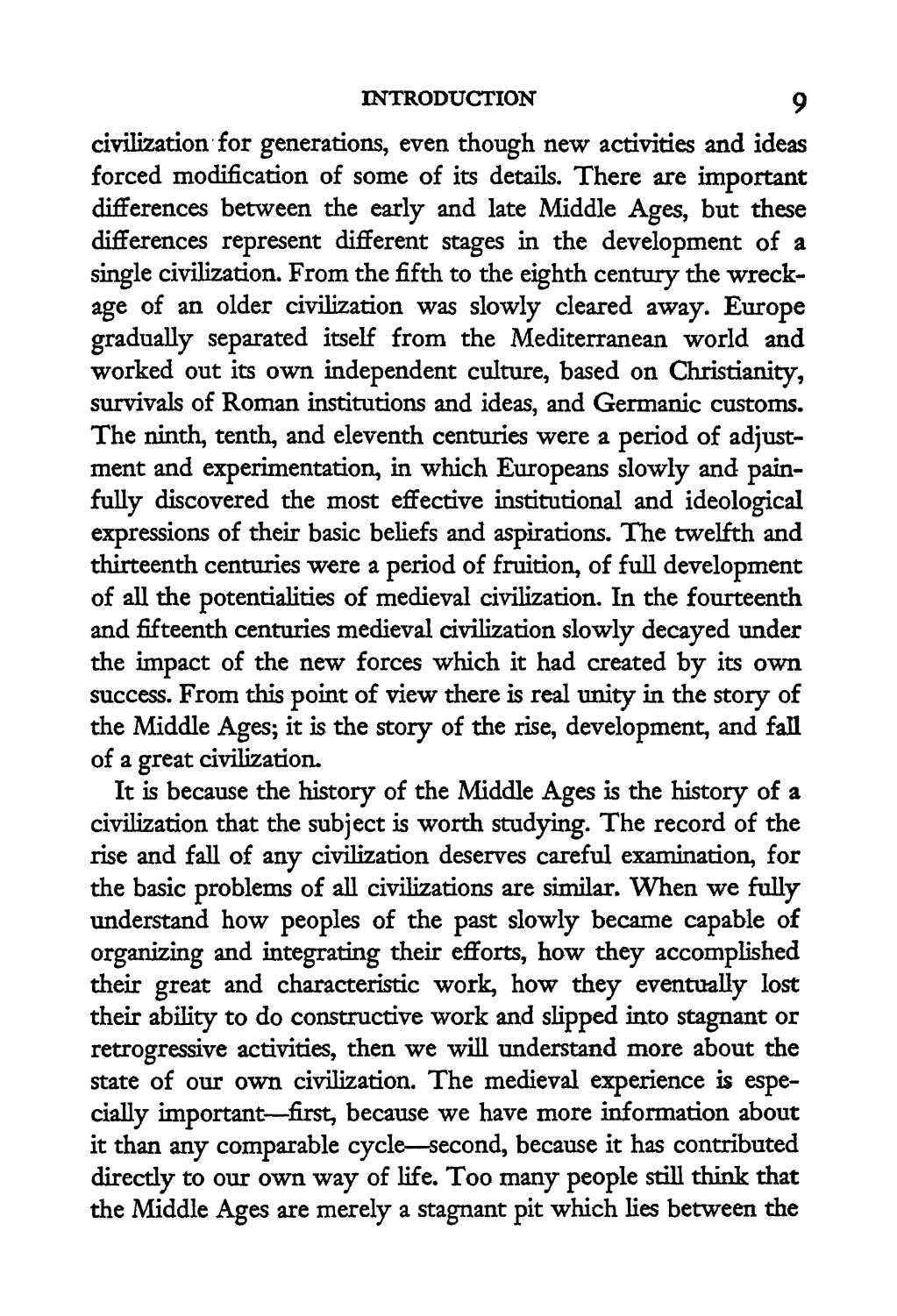civilization for generations, even though new activities and ideas forced modification of some of its details. There are important differences between the early and late Middle Ages, but these differences represent different stages in the development of a single civilization. From the fifth to the eighth century the wreckage of an older civilization was slowly cleared away. Europe gradually separated itself from the Mediterranean world and worked out its own independent culture, based on Christianity, survivals of Roman institutions and ideas, and Germanic customs. The ninth, tenth, and eleventh centuries were a period of adjustment and experimentation, in which Europeans slowly and painfully discovered the most effective institutional and ideological expressions of their basic beliefs and aspirations. The twelfth and thirteenth centuries were a period of fruition, of full development of all the potentialities of medieval civilization. In the fourteenth and fifteenth centuries medieval civilization slowly decayed under the impact of the new forces which it had created by its own success. From this point of view there is real unity in the story of the Middle Ages; it is the story of the rise, development, and fall of a great civilization.
It is because the history of the Middle Ages is the history of a civilization that the subject is worth studying. The record of the rise and fall of any civilization deserves careful examination, for the basic problems of all civilizations are similar. When we fully understand how peoples of the past slowly became capable of organizing and integrating their efforts, how they accomplished their great and characteristic work, how they eventually lost their ability to do constructive work and slipped into stagnant or retrogressive activities, then we will understand more about the state of our own civilization. The medieval experience is especially important — first, because we have more information about it than any comparable cycle — second, because it has contributed directly to our own way of life. Too many people still think that the Middle Ages are merely a stagnant pit which lies between the
